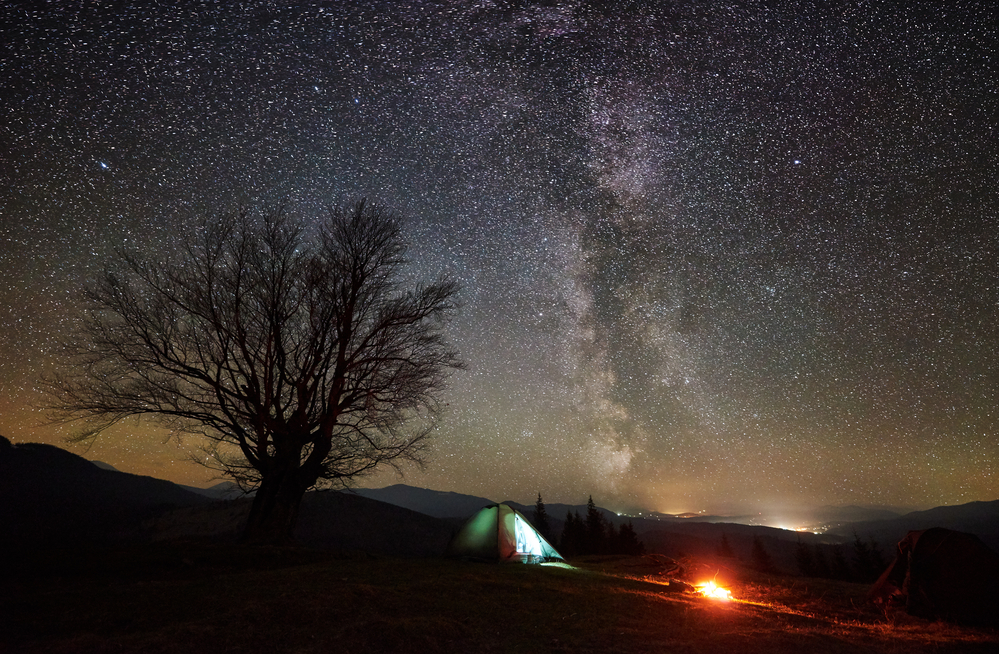As part of a special issue of the peer-reviewed journal Ecopsychology on defining ecotherapy and its use to address mental health issues, researchers from British Columbia, led by Sean Frey, published qualitative research that explored the healing experiences participants had in natural darkness (ND) as part of the overnight recollective practices they engaged in.
Light pollution can be understood as a symptom and consequence of many modern societies’ preference for nighttime light, leading to the night being a less restful natural cycle. It has gained attention because of its adverse effects on non-human animals and plants. These include altering migration patterns and affecting feeding, foraging, hunting, hiding, communicating, reproducing, and growing.
While artificial light at night has allowed humans to reduce accidents, prevent crime, and increase productivity, such increases in light pollution, with 80% of the human population being impacted, have correlated with increases in sleep disorders, obesity rates, depressive symptoms, and cancer. The authors discuss some of this in the context of human history and the meaning of nighttime light:
“Historian Roger Elkirch attributes the increase in nighttime light to humans’ attempt to reduce the ancient fear of darkness: ‘man’s first necessary evil, our oldest and most haunting terror.’ Elkirch believes this fear evolved from histories of injuries and death caused by crossing difficult terrain at night and nighttime attacks by other humans and animals. Before light offered protection, European towns would employ alternative ways of keeping safe through town watchmen, protective city gates, and linkboys, who helped navigate nocturnal terrain. Nighttime illumination in the Western world has since been diligently used to reduce nocturnal fears.”
















I don’t think people’s encounters with the sacred ought to be “researched”, as “psychology” has no sense of the sacred.
Report comment
Given the fact that my former psychologist, very literally, blasphemed the Holy Spirit in her medical records. I’d say you’re absolutely right, Birdsong, “psychology” has no sense of the sacred – to the extreme point that at least one psychologist (but likely many) literally committed “the only unforgivable sin” in the entire Holy Bible … blaspheming the Holy Spirit.
Report comment
Blaspheming (imo) is the word that best describes the DSM and is the reason I consider using it unpardonable, as the Holy Spirit is in every human being.
Report comment
CORRECTION: Blasphemy is the word that best describes the DSM.
Report comment
….and worse, no respect for the sacred.
Report comment
Nothing’s more calming and spiritually restorative than the beauty and quiet of nature. It’s my favorite companion, day or night.
Report comment